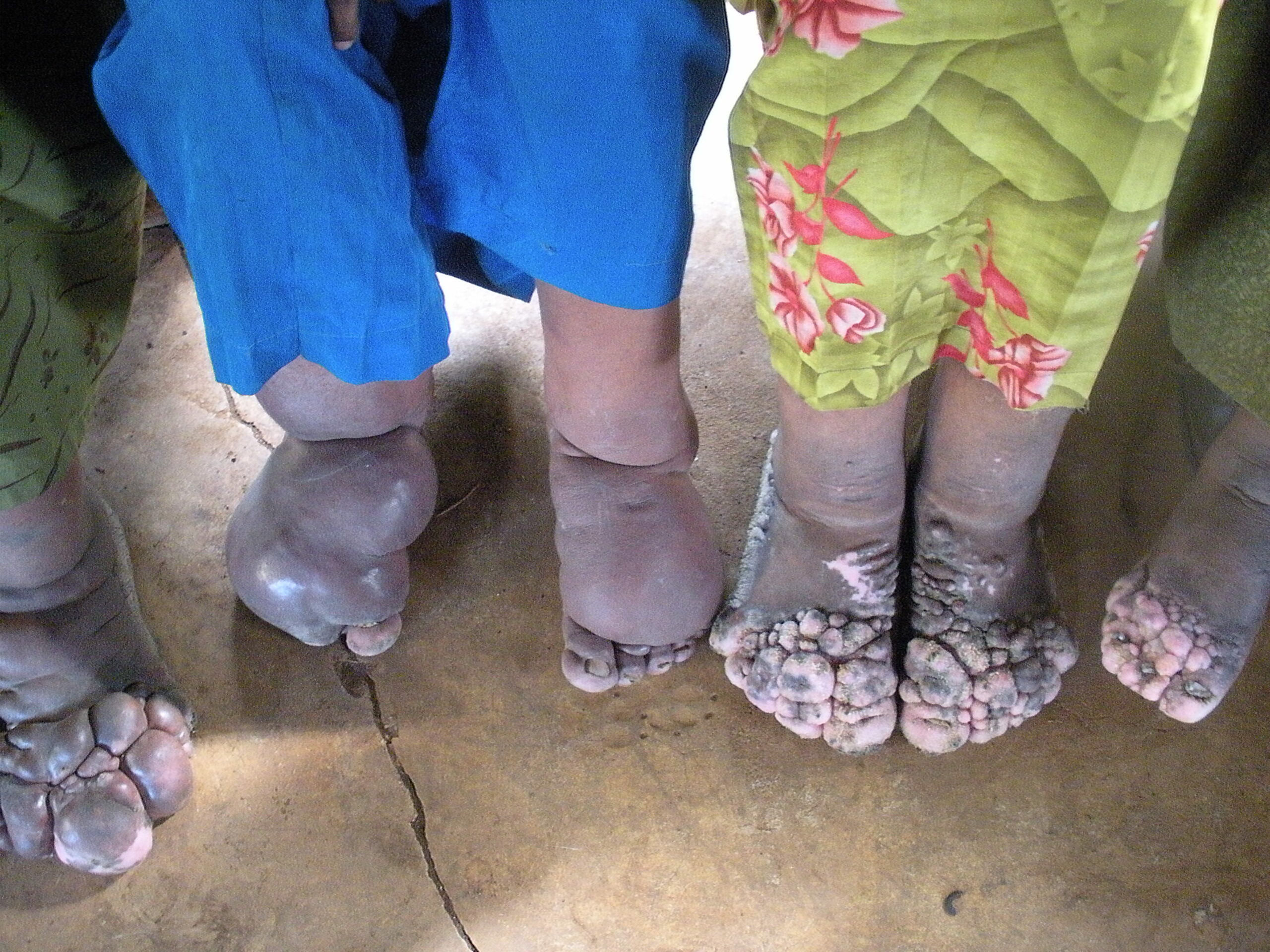We have partnered with Footwork, an international initiative to eliminate podoconiosis (or ‘podo’), a non-infectious geochemical disease arising in barefoot subsistence farmers whose feet are in long-term contact with irritant red clay soil of volcanic origins.
The soil which causes the disease is found in many of the coffee-growing areas of Ethiopia.
According to a recent study, around 25% of the population of Ethiopia relies upon coffee as a direct or indirect source of income, so it is perhaps no surprise that an estimated 1.5 million people in Ethiopia are affected by this disease. Roughly 35 million Ethiopians are thought to be at risk.


